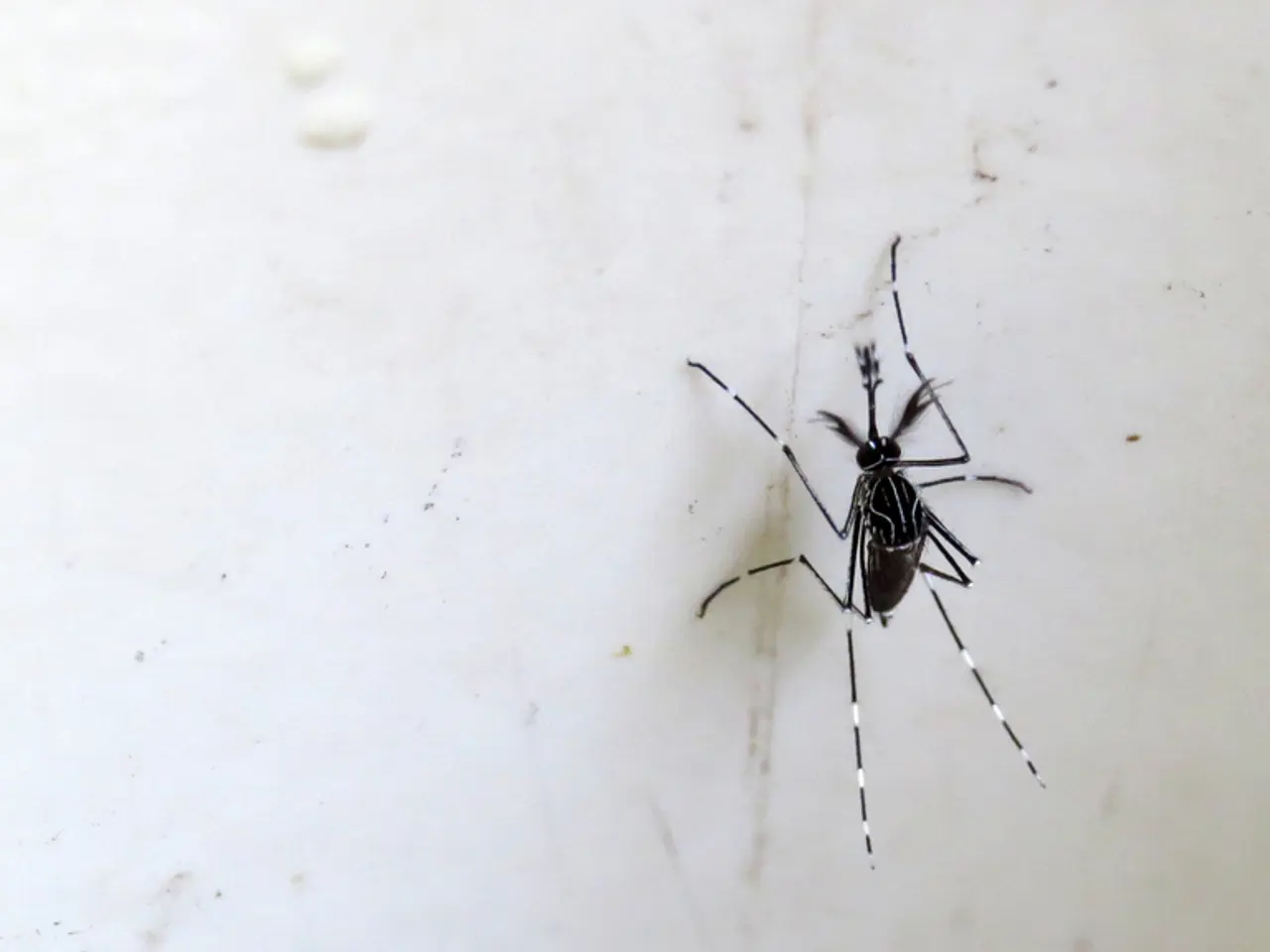Increase in instances of malaria, dengue, and chikungunya reported within the city
Rise in Vector-Borne Diseases in Mumbai: Early Monsoon and Poor Water Management
Mumbai, the bustling financial capital of India, has seen a significant surge in vector-borne diseases such as malaria, dengue, chikungunya, and hepatitis in 2025.
Between July 14 and the end of the month, 426 dengue cases were reported, and 86 chikungunya cases were reported in Mumbai. Malaria cases nearly doubled from 2,852 in 2024 to 4,151 in the first seven months of 2025.
The key factors contributing to this surge include the early onset and prolonged rainfall of the monsoon. The monsoon arrived around May 26, nearly two weeks earlier than usual, leading to water stagnation across the city. This has created ideal breeding grounds for disease-carrying mosquitoes.
The Brihanmumbai Municipal Corporation (BMC) noted over 38,000 Aedes mosquito breeding sites (vectors for dengue and chikungunya) and more than 14,000 Anopheles breeding sites (vectors for malaria) inspected in early July. Stagnant water in residential areas and discarded items like tyres provide ideal mosquito habitats.
Mumbai's densely populated areas, especially crowded housing societies with high migrant populations, facilitate the spread of these mosquito-borne illnesses. Doctors reported that vector-borne diseases primarily affect dense residential locations, contributing to the increase in cases.
Enhanced vector control operations, blood sample testing, health camps, and workplace inspections have increased case detection. Some of the rise may reflect better awareness and reporting rather than only an actual disease spread.
Once considered rare in Mumbai, chikungunya cases have risen sharply, becoming a common occurrence in recent years, adding to the overall vector-borne disease burden. While cases of leptospirosis, gastroenteritis, and COVID-19 showed a marginal decline, hepatitis A and E saw a spike, with 613 cases reported from January to July 2025.
In response to the rise in cases, the BMC has issued advisories recommending cleaning of stagnant water pools, avoiding clutter, using mosquito nets, drinking boiled water, and avoiding street food. The BMC has also warned citizens not to ignore fevers.
Dr. Abizer Manked, Consultant Physician at Saifee Hospital, Mumbai, stated that malaria is presenting differently this year, causing severe joint pain that impacts productivity and daily life. Dr. Gautam Bhansali, consultant physician at Bombay hospital, stated that there have not been many hospitalisations, and extremely low platelet counts have not been seen, but this would be a matter of concern.
To combat the rise in vector-borne diseases, the BMC has increased surveillance and relaunched its 'Aapli Chikitsa Yojana', providing common blood tests, urine analysis, and several diagnostic tests at nominal costs and providing the test results to the patients via WhatsApp.
In summary, the early monsoon rains and poor water management in a highly populated urban setting, together with enhanced surveillance, have led to the significant rise in malaria, dengue, chikungunya, and hepatitis in Mumbai during 2025. The BMC continues to urge citizens to take precautions to prevent the spread of these diseases.
1.The surge in vector-borne diseases in Mumbai, such as malaria, dengue, chikungunya, and hepatitis, is not only a health-and-wellness concern but could also impact India's cricket team's performance due to chronic diseases caused by mosquito bites.
2.With the overall rise in vector-borne diseases, there is a growing need to make mental-health resources more accessible to people in Mumbai, as the stress caused by such conditions can lead to mental-health issues.
3.Environmental scientists in India are exploring the impact of COVID-19 on disease dynamics, as the pandemic has led to shifts in urban patterns and behaviors that, in turn, might alter the spread of vector-borne diseases.
4.Considering the effects of vector-borne diseases on both physical and mental health, fitness-and-exercise routines, and cbd products (known for their potential stress-relieving properties), might prove beneficial in managing the overall impact on the residents of Mumbai.
5.The medical community in Mumbai is closely monitoring an unexpected correlation between vector-borne diseases and certain chronic medical-conditions, such as diabetes and heart diseases, to better understand the long-term effects of these tropical infections on their patients' health.




